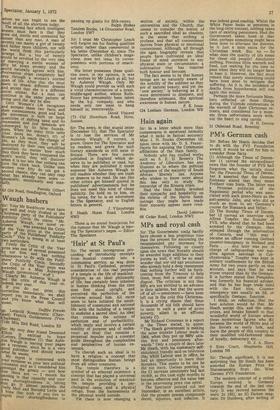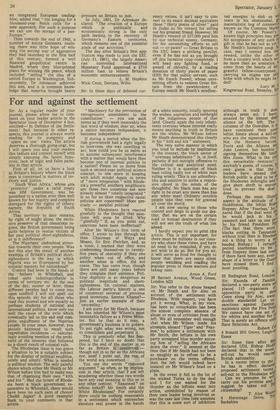Sir: Though significant, it is not surprising that Mr Heath
has been awarded the Europe Prize for Statesmanship from the West German FVS Foundation.
The modern concept of a united Europe evolved in Germany towards the end of the last century. It was revived between the wars. In 1931, an IG Farben magnate, Dr Duisberg, after writing of an integrated European tradingbloc, added that " the longing for a thousand-year Reich calls for a new approach. For such a purpose we can use the mirage of a panEurope."
Then towards the end of 1943, a number of astute Germans, realising there was little hope of winning the second war of aggression they had launched in the first half of this century, formed a well financed geopolitical centre in Madrid, where they blue-printed plans for winning the peace, which included " selling " the idea of a united Europe to Washington. Subsequently, Dr Adenauer achieved this aim, and it is common knowledge that America brought heavy pressure on Britain to join.
In July, 1951, Dr Adenauer declared: "The creation of a Europe which is politically and economically strong is the only path leading to the recovery of Germany's Eastern territories, which remains one of the essential goals of our activities."
The day after Britain's first application was made to join the EEC (July 31, 1961), the largely Ameri can controlled International Monetary Fund approved a £716 million loan to relieve Britain's economic embarrassments.
L. M. Hopkins Wick Crest, Devizes, Wilts.















































 Previous page
Previous page